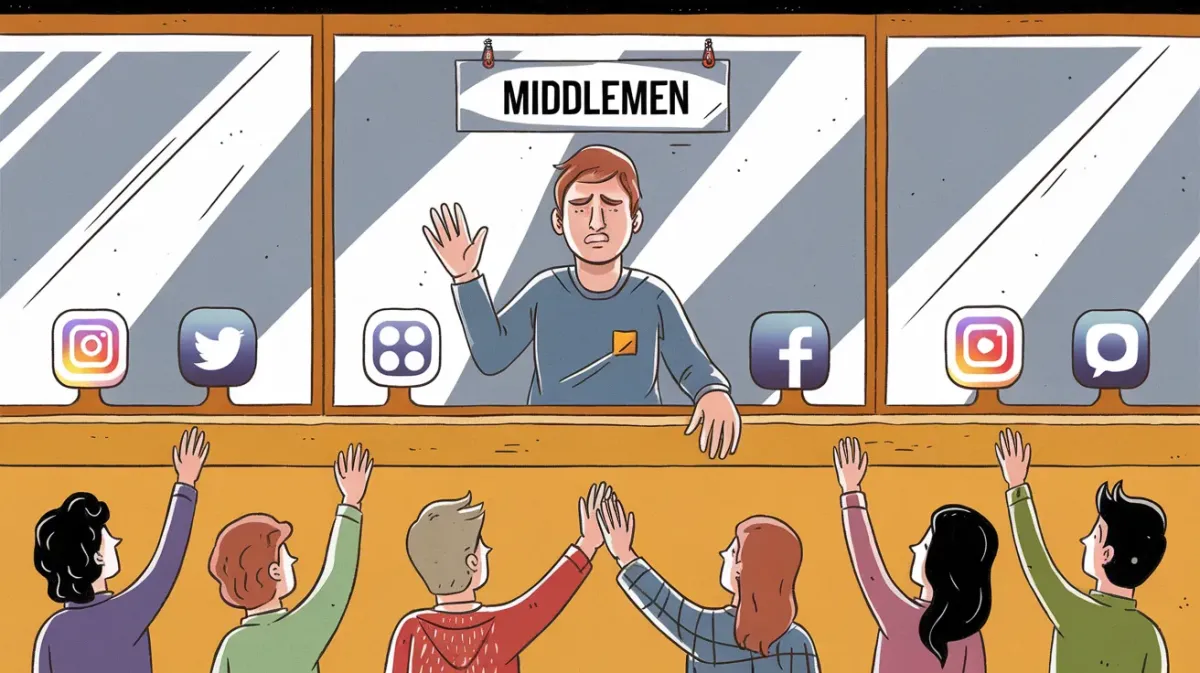
The $6 Trillion Shift – Why Web2 Commerce Needs Web3 (and How Uni-Fy Fits In)

Introduction
Every year, billions of people shop online, buying clothes, courses, services, and subscriptions. By 2025, global e-commerce sales are expected to surpass $6 trillion. That’s bigger than the GDP of Japan and Germany combined.
But here’s the strange part: despite all the hype about blockchain and crypto, almost none of this activity happens on-chain. We’ve built a digital economy that feels modern, but it’s still running on old, centralized rails.
What if the same ease of shopping you enjoy on Shopify could merge with the empowerment of crypto? That’s the trillion-dollar shift Uni-Fy is preparing for.
This blog explores why Web2 commerce is reaching its limits, how Web3 fills the gaps, and how Uni-Fy is uniquely positioned to make e-commerce more borderless, transparent, and creator-friendly.
Web2 commerce is controlled by gatekeepers

E-commerce today is easy, but expensive. Platforms like Amazon, Shopify, and Etsy charge high fees while controlling sellers’ access to customers. A small store owner in Lagos or Jakarta may get online, but they still rely on payment processors, shipping restrictions, and corporate rules.
The result? Limited reach, squeezed profits, and businesses stuck in the shadows of giants.
With Uni-Fy, there’s no middleman. Smart contracts automate sales, payouts, and commissions. Instead of waiting weeks for payment processors, sellers get paid instantly in crypto. Instead of asking permission from centralized platforms, sellers own their storefronts outright.
Commerce becomes peer-to-peer, transparent, and global.
Creators struggle to monetize at scale

The creator economy is massive, millions of YouTubers, TikTokers, and freelancers are turning passion into income. But most rely on ads, brand deals, or subscription platforms that take hefty cuts. Creators build loyal communities but don’t own them.
Worse still, when algorithms change, revenue disappears overnight.
Uni-Fy flips the script. Instead of relying on ad-driven models, creators can directly sell products, services, or digital assets on-chain. Affiliates help them scale by promoting to new audiences, while blockchain ensures commissions are paid instantly and transparently.
No gatekeepers. No sudden algorithm shifts. Just creators and communities thriving together.
Traditional commerce lacks transparency and aligned incentives

In Web2, trust is fragile. Customers don’t know where their money goes. Sellers can’t always verify which affiliate drove a sale. Affiliates face delayed commissions or disputes. The system is riddled with inefficiency.
On Uni-Fy, every transaction is visible and verifiable. Sellers know exactly which affiliate generated revenue. Affiliates see commissions drop into their wallets instantly, no middlemen, no broken trust. Customers can even track their purchases with transparency.
It’s commerce where everyone wins.
Storytelling Example

Meet Sarah, a jewelry designer in Nairobi. She creates beautiful handmade pieces but struggles to sell beyond her local market. Shopify requires international banking links she doesn’t have. PayPal isn’t available in her country. Global reach feels impossible.
Enter Uni-Fy. Sarah sets up her storefront on-chain. Within days, she connects with affiliates in London and New York who promote her products. A customer in Paris makes a purchase. Instantly, Sarah is paid in crypto. Her affiliates receive their commission in the same moment, visible on the blockchain.
Sarah didn’t just sell a necklace. She sold globally. She built trust. She grew her brand beyond borders.
This is what Uni-Fy unlocks: not just sales, but sustainable empowerment.
The Bigger Picture

The global e-commerce market is booming, but it’s centralized, costly, and restrictive. At the same time, the creator economy is exploding, with individuals eager to monetize communities. Yet less than 1% of this activity is happening on-chain today.
That’s the gap Uni-Fy is filling. By combining the ease of Shopify with the empowerment of crypto, Uni-Fy isn’t just competing with e-commerce platforms, it’s creating a new category: Web3 commerce.
This is more than a business opportunity. It’s a redefinition of how people buy, sell, and collaborate worldwide.
Conclusion

The world is on the edge of a $6 trillion transformation. Web2 commerce has shown us convenience. Web3 commerce will show us fairness, transparency, and global accessibility.
Uni-Fy is laying the rails for this shift. From small creators in emerging markets to established brands looking for new engagement models, the future of commerce won’t just live online, it will live on-chain.
The only question is:
Will you stay stuck in yesterday’s system, or join the wave Uni-Fy is leading today?
